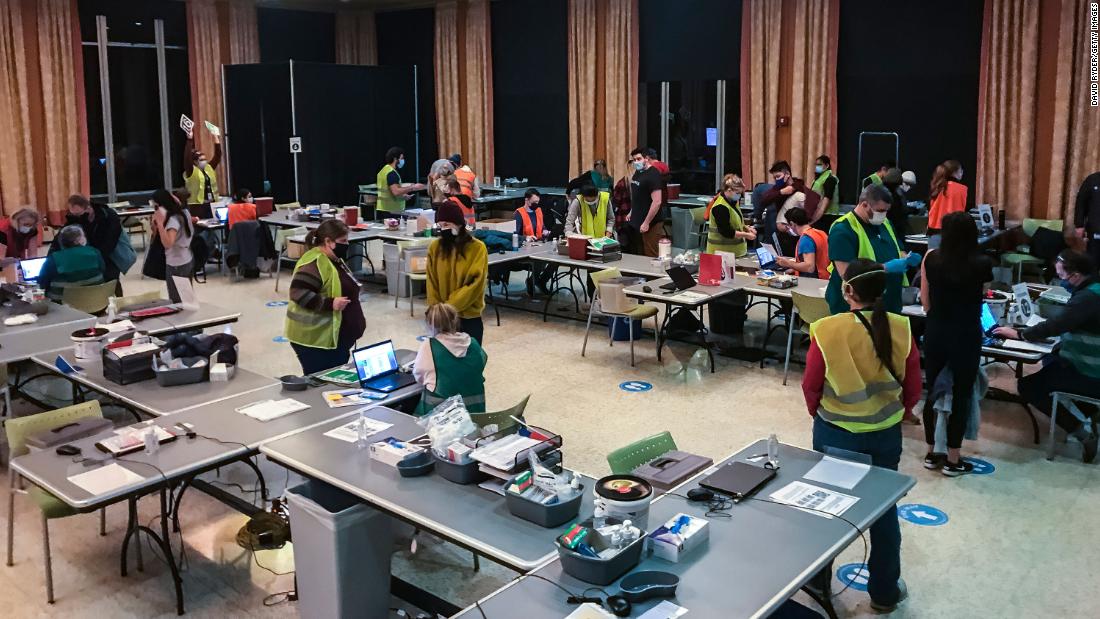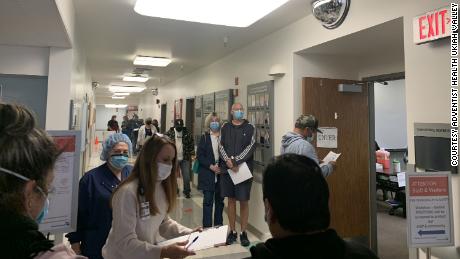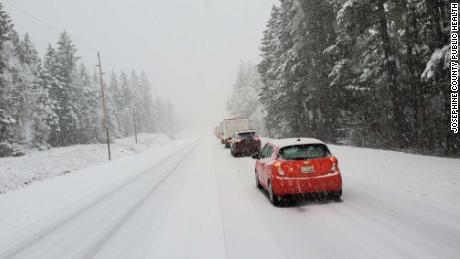Health care workers scramble to use vaccines before they expire
In the worst cases, valuable doses have been wasted or thrown out. However, quick thinking by practitioners mixed with a bit of luck have found them administering vaccines in unique circumstances.
On Thursday night, after a freezer containing vaccine doses malfunctioned in Seattle, a nearby hospital had less than nine hours to administer more than 800 vaccinations before they spoiled. Vaccines from Pfizer-BioTech and Moderna require certain low temperatures for storage and have a limited shelf life when exposed to room temperature.
Swedish Health Services told CNN it quickly signed up eligible recipients on short notice via social media. Clinical and non-clinical hospital volunteers convened to run the site.
“No vaccine went to waste last night,” spokesperson Tiffany Moss told CNN on Friday.
Clever solutions and fast action by health workers nationwide, when faced with the total loss of a vaccine supply, have benefited those in the right place at the right time.
Only while supplies last
On January 4, similar to Thursday’s recovery in Seattle, a California hospital discovered its freezer storing Moderna vaccines was broken.
“It was our main focus to make sure that we got every single vaccine into every arm,” Adventist Health executive Judson Howe told CNN. “We reached out to the county public health officer and informed them of the situation and with a collaborative approach, we were able to administer all 830 vaccines in a matter of two hours.”
“The reality is we were presented with a tough situation and we weren’t going to let any vaccine go to waste,” Howe said.
About 200 doses went to the county to administer, 70 went to skilled nursing facilities and the rest went to four clinics, prioritized according to state guidelines, medical officer Dr. Bessant Parker said.
“Given that this was an emergency, we focused on as many people as we could quickly mobilize within the tiers, and then the rest was to the general public on a first-come, first-served basis,” Parker said.
The group had six leftover doses of the vaccine, according to the health department. To keep those doses from going unused before they expired, the workers went from car to car to offer people the chance to get a shot.
The workers found six takers, including a sheriff’s office employee who had intended to be at the earlier mass vaccination event but got stuck in the snow, according to the health department. A nearby ambulance monitored in case any recipients experienced an adverse reaction.
Wasted opportunities
Other situations on the ground have not had the same success.
In Ohio, the Department of Health announced on January 20 it was halting allocations to a Columbus vaccine provider after nearly 900 doses were wasted through improper transport. An investigation has begun over concerns the refrigeration temperatures were not monitored sufficiently.
A shipment of 4,400 doses to Maine on January 18 were initially deemed out of the proper temperature range, according to the state Center for Disease Control and Prevention. An ongoing investigation by the vaccine distributor later determined the doses may still be usable because they could have been stored in too cold of a temperature rather than too warm.
“We just want to say that we should not waste vaccine,” Ghaly said. “We know that our providers and those who are in charge of vaccinating are very thoughtful, innovative people, that they have access to individuals who are in those higher-risk tiers. And they should do all that they can to make sure that they’re giving vaccine to those who have been deemed highest risk based on our priority groups and our faces and our tears.”
“But by all means, don’t waste vaccine.”
CNN’s Andy Rose, Alta Spells, Christina Maxouris, Stella Chan, Elizabeth Joseph, Dakin Andone, Sahar Akbarzai, Joe Sutton, Carma Hassan and Rebekah Riess contributed to this report.
![]()






